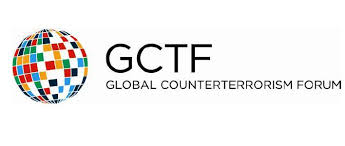
Morocco, a Key Player in GCTF’s Initiative against Homegrown Terror
 Morocco, which co-leads with the USA, the GCTF’s Initiative to address homegrown terrorism, plays a key role in the initiative thanks to its support and leadership, said a top U.S. State Department counterterrorism official.
Morocco, which co-leads with the USA, the GCTF’s Initiative to address homegrown terrorism, plays a key role in the initiative thanks to its support and leadership, said a top U.S. State Department counterterrorism official.
Over the course of the next year, a series of regional workshops will identify innovative prevention programs for addressing the challenges of homegrown terrorism, said Nathan Sales, the ambassador-at-large for the Department of State counterterrorism bureau, at a hearing held lately by the Senate Foreign Relations Subcommittee on Counterterrorism.
Member countries of the Global Counterterrorism Forum (GCTF) committed to addressing the threat of returning foreign terrorist fighters (FTFs), countering terrorist financing, enhancing border security, building capacity, and preparing national action plans in African countries, Sales told the US lawmakers.
The United States and Morocco officially launched the “Initiative to Address Homegrown Terrorism” on November 16 in Malta, convening over 70 government officials, law enforcement officers, and non-governmental representatives from 25 countries.
Morocco and the Netherlands had been re-elected as chair of the Global Counter-Terrorism Forum for a new two-year term, on the occasion of the 8th ministerial meeting of this body, held last September in New York.
The homegrown terrorism threat is growing as ISIS attempts to compensate for the loss of control of territory in Iraq and Syria by encouraging and directing attacks elsewhere, including by leveraging foreign terrorist fighters relocating from the conflict zone.
Recent attacks in Barcelona, New York, and Manchester, show no country is immune to these terrorist attacks. ISIS’s prolific use of social media has expanded its reach throughout the world, allowing the group to direct or inspire adherents, including those who have never stepped foot in a conflict zone, to commit acts of terrorism in their own countries.
In his statement before the Senate Foreign Relations Subcommittee on Counterterrorism, the US coordinator for Counterterrorism said the jihadists are developing networks across North Africa that seek to attack the continent, Europe, and the United States as ISIS loses control of its so-called caliphate in Iraq and Syria.
He said that Algeria’s long conflict with the Armed Islamic Group in the 1990s underscored how important it is for countries to manage effectively the risks posed by returning terrorist fighters.
“We also remain concerned about al-Qaeda’s affiliates in the region, especially al-Qaeda in the Islamic Maghreb (AQIM), and their growing reach into other parts of Africa”, added Nathan Sales, stressing the need to remain vigilant against the menace posed by North African foreign terrorist fighters (FTFs) returning home after fighting on behalf of ISIS in Iraq and Syria.
According to Joan Polaschik, the principal deputy assistant secretary for the Bureau of Near Eastern Affairs, about 3,000 to 6,000 Tunisians alone traveled to the Middle East to join ISIS.
Although U.S.-backed local forces pushed ISIS out of Libya, once home to its largest stronghold outside of Iraq and Syria, the potential exists for the jihadist organization to regroup in the country where political chaos and deteriorating security conditions continue to plague the population, warned Polaschik.
He also said that any attempts to impose a military solution will only fuel a renewed civil conflict, providing ISIS and Al Qaeda with opportunities to again use Libya as a base to threaten the world.
